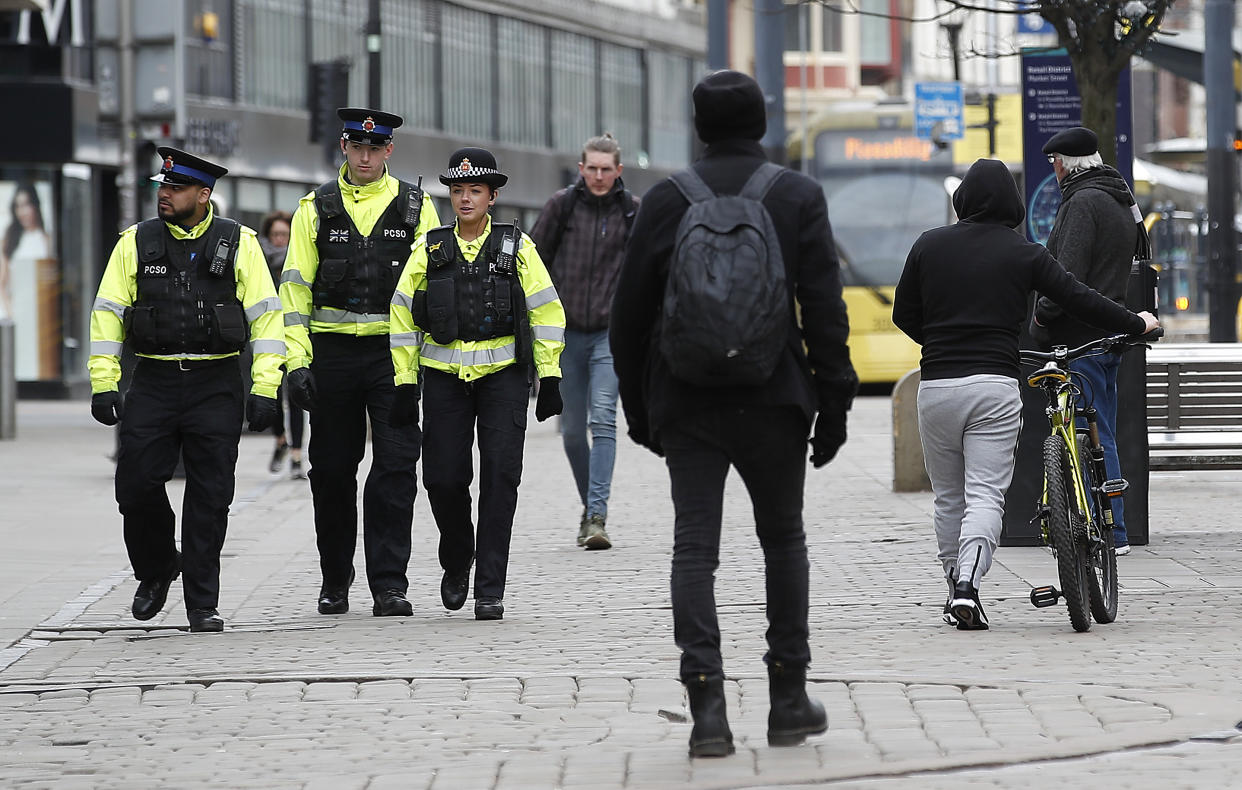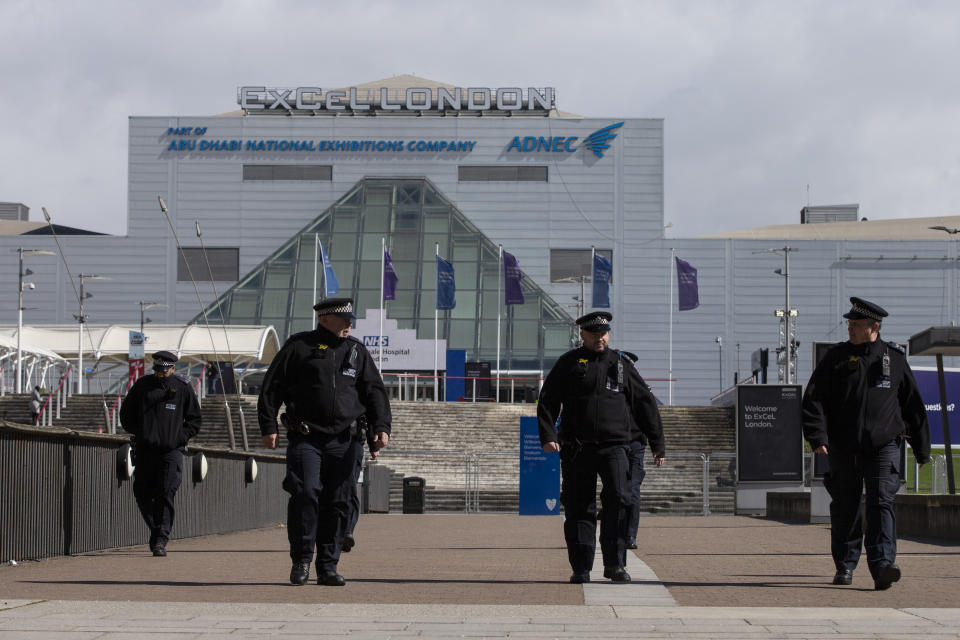Coronavirus: Police will 'ignore low-level crimes' as pandemic causes officer shortage

Police will be forced to ignore certain crimes as the coronavirus causes officer shortages, it has been reported.
As police numbers drop because of the spread of the virus, forces will halt some investigations, The Times said.
One of the government’s leading scientific advisers said the nationwide coronavirus restrictions could last until June, but that the outbreak in the UK was “starting to slow down” because of social distancing measures.
The death toll in the UK has reached 1,408, after 180 more fatalities in England, Wales, Scotland and Northern Ireland were announced on Monday.
The Times said it has seen documents which show officers will be redeployed to the most serious crimes and responding to 999 calls if forces reach black status, in a “graduated withdrawal of service plan”.
Read more: Hospital consultant first NHS frontline worker to die from coronavirus
The newspaper said at least one regional police force had already reached red status, the second most severe level, which means most officers are assigned to “immediate, priority incidents”.

The plan to withdraw police services applies to 43 forces in England and Wales and contains a number of “tipping points” that move forces through five statuses.
Latest coronavirus news, updates and advice
Live: Follow all the latest updates from the UK and around the world
Fact-checker: The number of COVID-19 cases in your local area
6 charts and maps that explain how coronavirus is spreading
Should staff sickness rates increase to 20 to 30% next month, it will mean police ignoring low-level crime such as theft, affray and cannabis dealing, The Times reported.
If a force moves through the five statuses – blue, green, amber, red and, finally, black, it means it can no longer provide “essential critical activities”.
Watch the video below
The Times quoted a senior source as saying: “If you get to black, the force basically can’t function. You will either have to call in the army or request aid from other police forces. It’s edge-of-the-cliff stuff.”
In red and black status, police forces will focus only on 999 calls, firearms and major incidents, serious crime, and vulnerability and public order issues.
Police have already been using emergency powers to clamp down on large gatherings of people and fines have been issued.
In one incident at the weekend, Derbyshire Police said they were left in “absolute shock” after breaking up a karaoke party involving 25 people, including children, in Normanton.
A motorist was stopped by police on the M6 in Cheshire during a 224-mile trip to buy a £15 item off eBay – with his wife in the boot of the car.
A spokesman for the National Police Chiefs’ Council said: “Inevitably, with a reduced workforce there will be things we can no longer do as a police service. We prioritise our demands every day and that will continue.
“There are no crime types that we would no longer respond to. If sickness levels within policing increase in the coming weeks, each call for help would be carefully risk assessed.”

 Yahoo News
Yahoo News 


